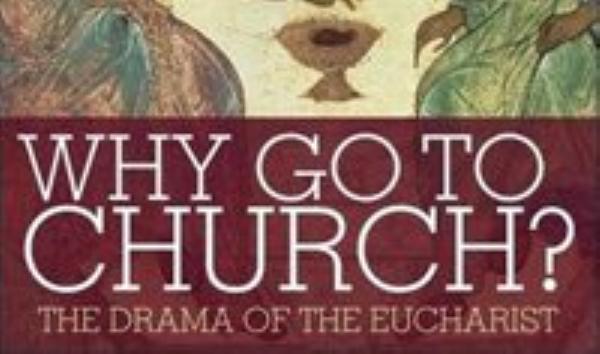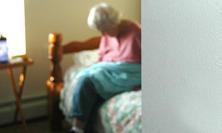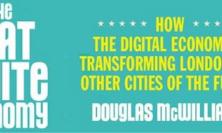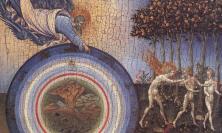I was recently describing Why go to Church? in enthusiastic tones to a friend who is a priest. ‘It’s great!’ I said, ‘full of real experiences and anecdotes that reach out to you.’ ‘Sounds useful’, he said, ‘just the sort of thing I need, lots of stories about why they should get up to come to Church!’ If you have a tricky sermon to write and you are considering the liturgy as a topic, you could do worse than turn to Timothy Radcliffe’s book. Indeed, as a previous Master of the Dominican Order – the Order of Preachers – Radcliffe would no doubt be pleased to offer some support to fellow sermon-writers. However, this book offers the reader so much more than a treatise on why they should get out of bed on a Sunday to go to Church: Radcliffe calls us to recognise the Eucharist as ‘The unobserved drama [which] is in the core of our humanity’.
Having identified this grand aspiration, Radcliffe shows great skill in demonstrating the Eucharist’s bearing on everyday life. Why go to Church? – commissioned as the Archbishop of Canterbury’s Lent Book 2009 – examines traditional Eucharistic celebration as though each part of the Mass is a dramatic scene in a three-act play; each chapter is labelled with its act and scene number. Despite this structure and his overarching aim to demonstrate that the Eucharist is a drama at the core of all we do, Radcliffe is happy to acknowledge that for many people attending Church regularly, ‘nothing much seems to happen’. However, throughout the book, the pitch of the drama that Radcliffe builds seems to increase. He begins by exploring the idea that with the sign of the cross and the confession of our sins, we are entering the ongoing narrative of God’s relationship with humankind; we express our desire to go home to God. Moving to the liturgical readings, Radcliffe encourages us to ‘discover every text as a cause of joy’ (p. 41), even those texts that seem unpalatably violent or meaninglessly anachronistic. He says we should seek to understand them as ‘the slow gestation of God’s Word of unconditional love, which is Jesus Christ’ (p.40). Radcliffe suggests that just as it took centuries for the English language to reach a complexity that allowed Shakespeare to write his plays, so too, generations of prophets, law-givers and poets were required to prepare the language in which God spoke to his people for the words of Jesus Christ.
Radcliffe tells the story of the Eucharist in disarmingly simple terms. In ‘Recognizing Jesus’, his chapter on encountering Christ risen in the Eucharist, Radcliffe focuses on recognising Jesus’ body. He quotes Herbert McCabe, who describes the experience of the disciples after the resurrection: ‘People are not just recognizing Jesus as the man they knew was killed. They are recognizing him as the man they sort of knew and thought they knew, but didn’t really know until now’ (p. 144). Radcliffe roots this difficulty in recognising God by bringing us back to our Sunday church experience. He says we live in a secular society where God seems to have disappeared, and yet the physical presence of God we are offered at Church is ‘a thin, tasteless wafer! This, we are told, is the foretaste of the heavenly banquet...Donagh O’Shea OP maintains that the first act of faith required is that it is bread!’ (p. 145)
In a book focusing on Eucharistic experience, Radcliffe handles the potentially difficult question of celebrating different Eucharistic traditions adeptly. He makes it clear when different understandings of what is happening in the Eucharist exist, but manages to draw relevance from both experiences for the reader. But for those who are looking for an examination of Church experience that goes beyond a Sunday Eucharist, Radcliffe’s focus may be frustratingly narrow. He constantly limits his text to follow the pattern of the traditional Eucharist and although he draws on an eclectic range of theological and pastoral experience, he does not draw the reader to question his interpretation of these prayers. Rather, he presents a diverse range of reflections to explain why the traditional Eucharist is presented to us in the way it is, and the significance it holds.
Why go to Church? seemed like an odd title for the author to have chosen. It clearly chimes with the title of Radcliffe’s earlier book, What is the Point of Being a Christian?, but this book does not seek to convince the reader why he or she should go to Church. Nor does it explore the many reasons outside of the Eucharistic celebration that people may attend Church. The author does deal briefly with people who attend Church but are excluded from receiving communion. He acknowledges that these people may ‘feel excluded’ but responds saying, ‘...these are situations in which ordinary people find themselves in our society, and these are the people whom Jesus surely invites to come and sit and eat with him’. He suggests that communion can be received after an individual has asked for forgiveness, but quickly brushes over the complex issues this question touches on.
Despite the book’s deliberately narrow focus, Why go to Church? offers a fresh perspective on the experience of a Sunday Mass. Instead of trudging to Church, responding to prayers mechanically and occasionally attempting to pray, I found that after reading this book, the Mass was much more accessible to me. I could remember some of the anecdotes Radcliffe used to animate his understanding of Eucharist. Although I imagine that an informed liturgist may have found Radcliffe’s aphoristic style too simplistic, I found his confidence reassuring and his use of day-to-day examples helpful. He successfully shows us that we are ‘at home’ with God and that the drama of the Eucharist is played out in order to draw us more closely into relationship with God.
Radcliffe’s book is not a polemic on why we should attend Church, nor is it an exercise in apologetics for aspects of Eucharistic experience: it manages to speak respectfully of the frustrations, confusion and hope experienced by many people who attend Church. It does not demean or patronise people who do not have a clear theological or liturgical understanding of what is going on in a Eucharistic celebration. Instead, it shows the reader how relevant the Eucharist is to their everyday experience, and in doing so raises these experiences to holiness. As a member of the Order of Preachers, Radcliffe should consider it a triumph that this book reaches beyond the pulpit and speaks to the reader throughout the Eucharistic celebration. It is certainly a book I will share with others, return to and continue to explore. Gathering together, sharing with each other and experiencing God is why we go to Church, and this book has given me the tools to re-examine where I fit in.
The reviewer, Angela Kitching, is a Parliamentary Officer and a member of the Editorial Board of Thinking Faith.
![]() Find this book on Continuum's web site
Find this book on Continuum's web site![]() The Archbishop of Canterbury's Lent Book 2009
The Archbishop of Canterbury's Lent Book 2009






